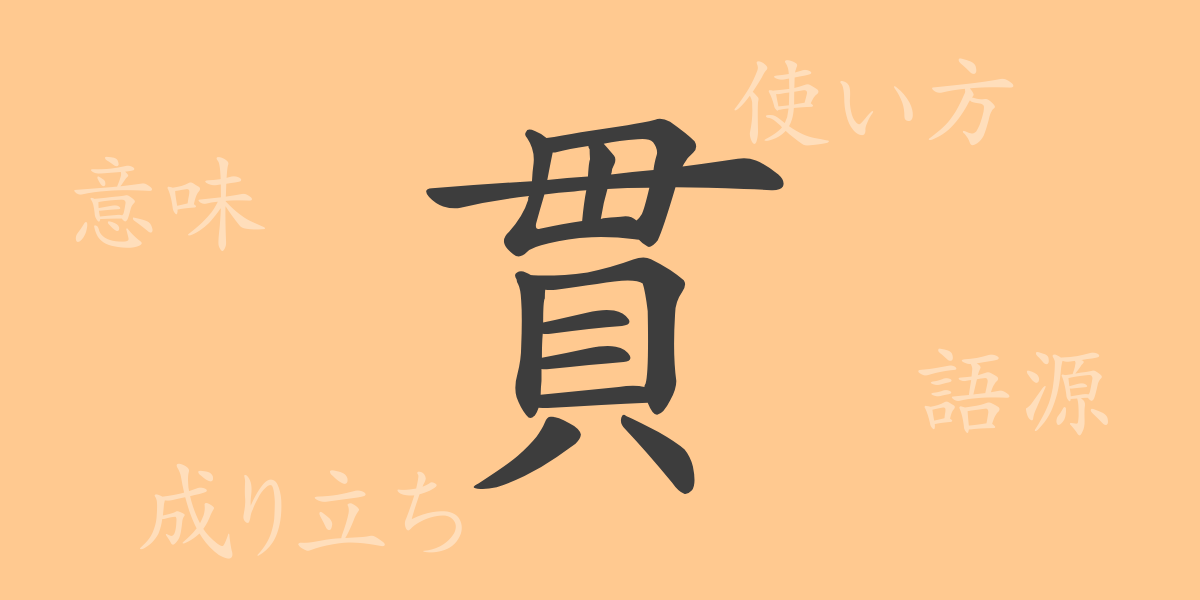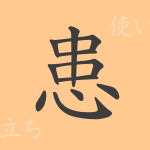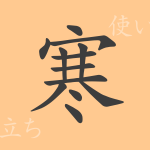Deeply rooted in Japanese tradition and culture, the Kanji character “貫” (Kan) embodies the strength and history that symbolize the Japanese spirit. This article delves into the etymology of “貫” (Kan), its meaning, usage, and even explores its pronunciation and idiomatic expressions, bringing you closer to the allure of this Kanji character.
The Origins of 貫 (Kan)
The Kanji “貫” (Kan) originates from ancient China, with a history that dates back to pictographs. Initially, it depicted the image of a stick or skewer penetrating an object. Over time, its meaning expanded to not only represent physical penetration but also to encompass abstract concepts such as spiritual perseverance and consistency.
The Meaning and Usage of 貫 (Kan)
“貫” (Kan) conveys meanings such as “to penetrate through something,” “to be consistent,” and “to pierce through.” It is also used as a unit of weight, where “一貫” (Ikkan) traditionally equals approximately 3.75 kilograms. In terms of usage, it appears in expressions related to both physical and metaphorical contexts, such as “to stick to one’s principles” and “a consistent attitude.”
Reading, Stroke Count, and Radical of 貫 (Kan)
Let’s review the basic information of the Kanji “貫” (Kan).
- Reading: The on’yomi (Sino-Japanese reading) is “かん” (Kan), while the kun’yomi (native Japanese reading) is “つらぬく” (tsuranu-ku) and “ぬく” (nu-ku).
- Stroke Count: “貫” (Kan) has a total of 11 strokes.
- Radical: Its radical is “貝” (Kai), which is common in Kanji related to wealth and currency.
Idioms, Phrases, and Proverbs Using 貫 (Kan)
There are numerous idioms, phrases, and proverbs that include “貫” (Kan). Here are a few examples:
- 一貫性 (Ikkansei): Consistency from the beginning to the end of a matter.
- 貫徹 (Kantetsu): Adhering to a principle or assertion to the very end without change.
- 意志貫徹 (Ishikantetsu): Sticking to one’s will or intention until the end.
- 十貫 (Jikkan): A unit of weight, ten times that of one “一貫” (Ikkan), equating to approximately 37.5 kilograms.
- 貫禄 (Kanroku): The natural dignity or presence acquired through experience and achievements.
Conclusion on 貫 (Kan)
The Kanji “貫” (Kan), despite its simple form, possesses a wealth of meanings. From physical penetration to the consistency of will and attitude, and even as a unit of weight, this character continues to play a significant role in Japanese life. It is our hope that through this article, you have gained a deeper understanding of the rich history and the extensive use of “貫” (Kan) in the Japanese language.

























